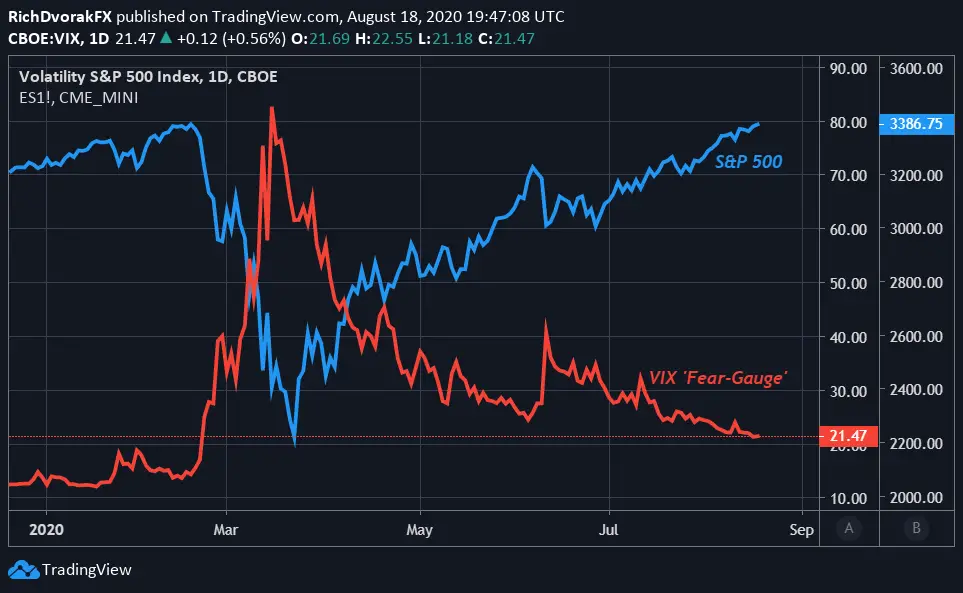Wealth Management Salaries, How Much Money Do Financial Advisors Make by Position?
In this blog post, we talk about Wealth Management salaries, and the salary gaps between different positions in the field. This is a blog post that I’ve been wanting to write for a really long time because I have now been in the field of finance and wealth management for going on 2 years, and have gotten the opportunity to try out two different positions so far, and to talk to people that are in at least 7-10 different positions in the field, everything from financial advisors and sales assistants, to portfolio managers, wealth strategists and AML compliance people, low level compliance people and high level compliance people, lawyers, accountants, directors, branch managers and regional managers, you name it, I’ve met them before at a work outing or a dinner. ‘
And so, in this blog post, we’ll talk about the salary ladder in wealth management, and of what ranks you can climb from the bottom up. For more information, be sure to comment down below and to subscribe to our blog for additional details and information.
The top positions in wealth management include:
Intern
Senior Intern
Receptionist
Administrative assistant
CSA – the acronym used for Client Services Associate, or Sales assistant to the financial advisor
Senior CSA
Wealth Strategist
Portfolio Manager
Financial Advisor
District Manager
Branch Manager
Top Shelf Financial Advisor
| Related Posts |
|---|
Financial Advisor with XXX Billions in AUM (this is how you make the real $ in Wealth Management)
And a host of other positions, in this blog post, we’ll look at the salary ranges and other perc’s for all of these.
Wealth Management Salaries, The Salary Ranges for Financial Advisors in Wealth Management, How The Ladder Works
And so, without further ado, lets get down to the meat and potatoes of this blog post. There is definitely a huge pecking order and hierarchy within the field of wealth management, but it is also something of an interesting field in that those at the lower ranks of the totem pole will very often get the upper hand in say salary negotiations etc. in that it takes such a long time to get someone new into the field, to train them, etc. that for financial advisors to lose their assistant is an absolute nightmare.
It can literally mean the survival or shrinkage of their business for this to happen at the wrong time, and so it is absolutely imperative that advisors assistants like them and plan to stick around for a little while, in that it can mean the difference between their business thriving and falling! And so, here is the salaries and rankings in the field of Wealth Management.
In comparison to a chain of command:
- Intern – This is basically a private. You typically get $15 per hour, and it is actually a pretty laid back job. You have some relative job security provided no layoffs happen, and for the most part you’ll take care of a lot of marketing, mailing birthday cards for clients, answering the phone etc, that the advisor doesn’t have time to deal with. All of the interns that I know have become or are about to become CSA’s at one point in time.
- Senior Intern – Sometimes this can end up with a raise and more responsibility, like helping out with correspondence, helping with changing addresses for clients, and possibly even transferring funds for clients. Maybe you get bumped to $17 per hour here.
- Receptionist/Administrative Assistant – A very undervalued and important position in the field of wealth management. This person will scan all incoming correspondence, will deal with any stock certificates that come into the branch, will deposit checks, and will answer the main line receptionist phone. Add in the fact that the person in this position is often encouraged to become a Notary and to get Medallion Stamp powers, and that they work very closely with management, and you can get extremely effective employee in this position. $45,000 to $50,000 per year tends to be the salary range in this position because you are 100% branch paid with no FA bonus comp, but you tend to have more job security and less risk in this position than in a CSA position. Less money but more security and less risk, tends to also be less stressful and much simpler than the CSA role.
- Starting Level CSA – This is when a CSA either comes on as a new hire, or has been partially trained from one of the other positions. At this point in time, I am something of a low to moderate-level CSA on the totem pole. Depending on which advisor you are working for, you will typically get a branch salary here ($45,000 to $50,000) and will then get compensation from Financial Advisors ($300 to $1000/m from each depending on experience.) The more advisors the branch has you working for, the more stressed out you will be (everyday is a dam heart attack and you sometimes have to work until 8pm), but also the more money you get. To give you an example of compensation, I am currently working for 3 advisors right now as a new CSA, which gives me compensation of $47,000 as a branch paid employee, plus $500 per month from one advisor, $300 per month from another advisor, and $0 per month from the third advisor (because he is onboarding a new assistant currently.) Add in a $600 per year health insurance account and advisor bonuses of $1000 per year and you have total compensation of $58,200 per year, with room for growth if you do good here both in resume capital and in better positions in the future (this can springboard you to a $100,000 per year CSA or to a $100,000+ Portfolio Manager). When you get to this level, you get additional perks too like your management licenses, the 9, 10 and 24 and your 2-15 Insurance license. You also have the opportunity to go for your CFP, CHFC, and CLU and improve your resume and business card significantly by getting those. Spend enough time in this position, and if you’re smart about it, even if shit hits the fan and you get fired, you can find yourself with such a good resume that you’ll never be without a job again (provided your U4 is clean) and in a fantastic financial position (savings, emergency fund, 401K, Roth IRA, health savings account, good income etc.).
- Wealth Strategist/Portfolio Manager – This position is when a CSA has been working for a team for 5-10 years and the team grows to a big enough level that they need to bring on another financial advisor. The advisor will typically help with portfolio management while the larger advisors will focus almost solely on bringing in new business and client engagement. The PMs typically get a percentage of the advisors book and will help scale the book of business by bringing in new clients of their own and meeting with clients as a proxy for the other advisors. If you are a salaried Wealth Strategist you can make $100,000 to $150,000 per year here while you also assist with CSA stuff. If you are a partner Portfolio Manager, you can make from $250,000 to $1,000,000+ per year depending on the size of the team.
- Financial Advisor – The average income for a Financial Advisor in the United States is about $400,000 per year pre-tax. Yeah, you read that right, $400,000 per year. I am consistently working with/making friends with financial advisors with a net worth of $3,000,000.00+ in their early 40s and 50s. These are the guys who either started building a book cold calling out of phone books right out of college, or who got lucky with a big client referral list from their parents, or who grinded from the bottom and built their book over 50 years. Your run of the mill financial advisor is typically going to have $50,000,000 to $100,000,000 in assets under management, for $500,000 to $1,000,000 per year in production, leading to a $200,000 to $400,000 per year annual income. The larger advisors with $500M to $1B+ in assets under management, or those advisors that deal heavily with 401K plans and Institutional clients, can make as much as 10 times that much money. The advisor I work for probably pulls in something like $5,000,000.00 per year in production between him and his partners, for about $1,500,000 in annual income…and the kicker is he is 41 years old. And while he is at the peak of his field, there is money to be had in Wealth Management for sure.
- District/Branch Manager – Both make around $250,000 to $500,000 per year, depending on state, need and experience. A Director/district head typically will have his 9/10 and 24 licenses, and will be highly compliance oriented. He will approve all accounts, review and approve all incoming and outgoing correspondence (client communications and mail for clients) and will assist in branch audits in the case of a surprise FINRA audit from the branch. They will also typically have 20+ years of experience, and actually I’m seeing that the best Managers have been CSAs for a long period of time, since they can help out with functional skills like booking in paperwork, international wire transfers, dealing with errors in transferring money, helping with Anti Money Laundering compliance, and the like. The goal of a Branch Manager is also to hire as many Financial Advisors as humanly possible, which you’d think would be a simple task (ie. just buy their book) however, in the case of us where we are understaffed, it can prove a difficult task.
- Top Shelf Financial Advisor, $500M to $1B in AUM – This is pretty much the peak of the Wealth Management field, from here, your business will theoretically scale itself and will grow exponentially due to the amount of client referrals that it has. With all of this in mind, it is extremely difficult to keep going, and you need to pay your CSA’s, portfolio managers and financial advisors extremely well in order to keep them happy. Get understaffed with this big of a book of business, and you can be drowning in lawsuits, and in clients that drop off the face of the earth (the book can get so big that you aren’t able to maintain all the requests for outgoing withdrawals, leading to clients dropping off, getting upset, getting lawyers involved, etc. I have seen this happen at a small scale and it is not a happy work day for anyone, it is EXTREMELY stressful, because you literally cannot keep up with the workload.) Make this work however, and you can easily retire with $50 to $100M depending on your spending habits throughout your life.
Final Thoughts on Wealth Management Salaries, This Post is a Great Summary of the Field
And that, in a nutshell, is pretty much the game of Wealth Management. If it sounds fun, exciting, education, and like a good way to move up the dominance hierarchy and put some money in your pocket over the long term, than you would be absolutely correct. Not to remove the glamour from the situation, but it is also an extremely stressful field, and especially at the higher levels and in certain situations, it can be akin to Investment Banking and Corporate law in terms of working hours. I have had 8am to 8pm 6 day a week work weeks in the office, and have probably booked something along the lines of 200+ hours of overtime in the last 3 months alone.
The money is definitely there, but make no mistake about it, balancing a social life and wealth management can often times be a struggle. Overall though, I wouldn’t change the field for a thing, and would be a very happy man to be in Wealth Management 10, 20 or even 30 years from now. I’ll also leave you with one other piece of advice before closing out this blog post that can help you to break into the field, since sometimes the barriers to entry are very difficult without your licenses (which you cannot get without sponsorship and experience.) But you can however, do the following to make yourself more attractive:
- Work in Insurance, Accounting, or an Analytics/Marketing Field – I went from the accounting/financial analyst/digital marketing track to Wealth Management, and it has paid off handsomely. I have seen people pivot from Insurance and have that work extremely well also.
- Pass the SIE – My manager told me that he has yet to see anyone outside of the field pass the SIE and interview. It shows you are serious and that you are that much closer to being able to take and pass the series 7, this alone will help you get your foot in the door.
- Become a Notary Public – This is another huge win in the field of wealth management, especially if you have worked as a contractor or employee as a notary before. In wealth management this skill is always needed but very few advisors or CSAs have this certification.
- Become an Enrolled Agent – Becoming an EA and doing something like getting experience at H and R block can show that you have a vast tax knowledge, which will help you in Wealth Management because you’ll be used to passing difficult tests (trust me if you can pass the EA exam then you can pass the Series 7 exam.) It is super easy to get a foot in the door at H and R block with the EA credential, and if you are starting from zero, tax is a fantastic resume boost. Combine all of these and you’ll be getting some calls from Wealth Management firms.
And that’s it, there’s the gist of the Wealth Management field and how you can break into it from scratch. Subscribe and comment down below for more information.
Cheers!
*Inflation Hedging.com
Sources:
https://www.bankrate.com/banking/cds/cd-rates/
https://money.cnn.com/data/markets/
Disclaimer: The opinions and documentation contained within this article and on this blog are the sole property of inflationhedging.com and are not to be copyrighted or reproduced in any manner, else legal action within the rights of the United States legal code could be use to obtain recompense. All articles and blog posts are the sole opinions of the writers of the blog, and are not necessarily in line with what exactly will work for you, you should consult a CPA, Tax Professional, or Financial Professional to determine what exact financial needs are in line with your interests. Also, from time to time, certain links on this website will be used to generate affiliate commissions, in order to support the health and growth of our website, health and business.







[…] Previous Obelisk the Tormentor Infinite Strength, How Strong is This Card? […]
[…] about survival in the wilderness by watching this show. While again this is not a blog post about Finance, I think it relates a little bit about what I write about on this blog, which is basically surviving […]
[…] I believe the guys name is Brandon and he is kind of a test taking Guru that used to work in the Wealth Management industry. He mainly specializes on the SIE, Series 7 and Series 66, as well as I think the 65 and […]
[…] always say I’ll have to pay taxes if I gift more than $15,000 is wrong, and of why the estate tax exemption downgrade for 99% of Americans is literally nothing to fear. Yes that’s right, in […]
[…] of Securities licenses, and for anyone who is serious about making a lasting career in the field of Wealth Management, whether it be a CSA or even a Financial Adviser, it is something that I would highly recommend […]
[…] strategic reason for them doing so. With this being said, plenty of test takers and those in Wealth Management have speculated at what the pass rate of this golden exam is, and I have heard that it is somewhere […]